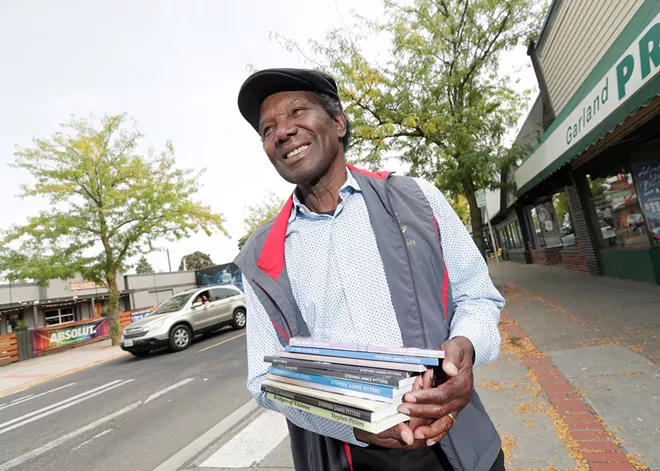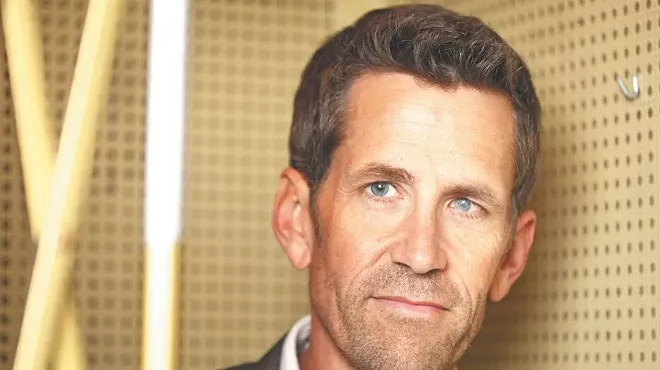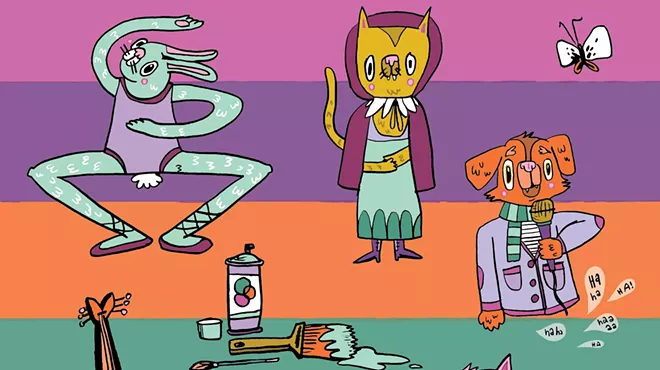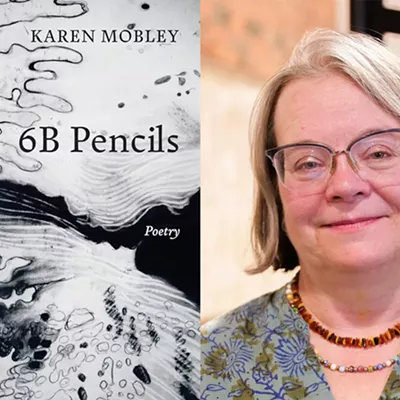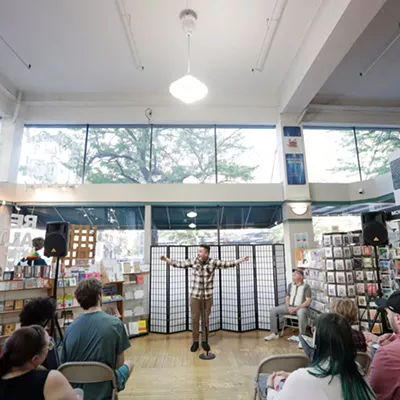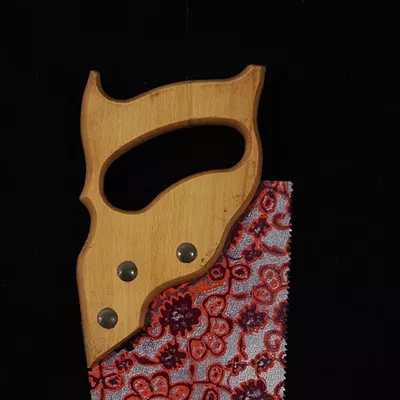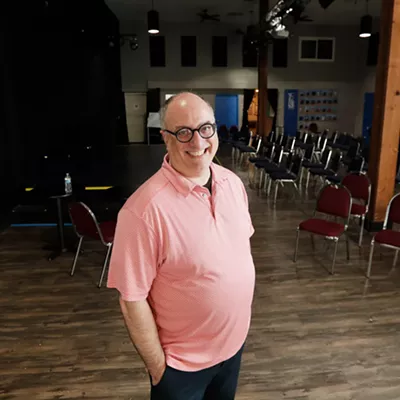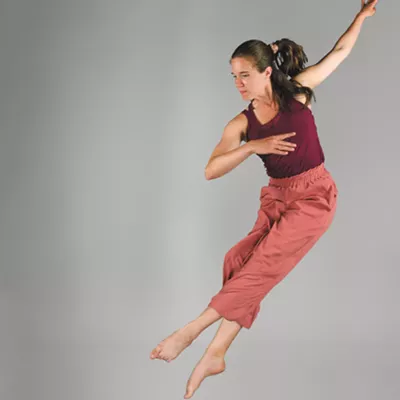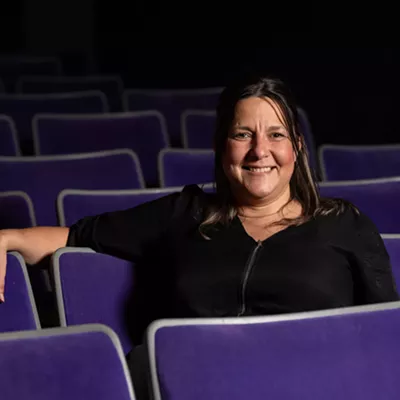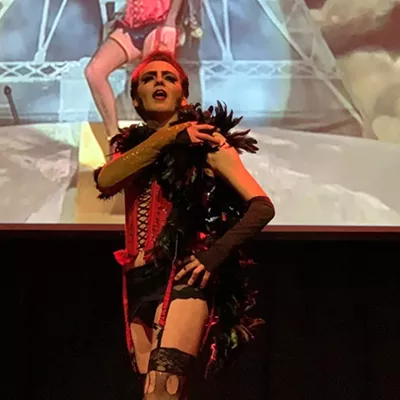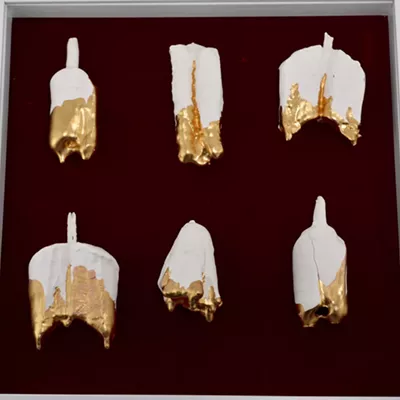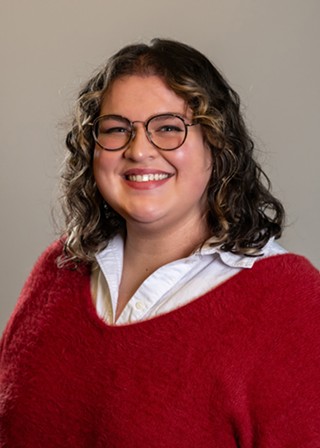When conjuring an image of a poet in your mind, you might imagine a brooding, isolated academic type. Spokane poet Stephen Pitters couldn't be further from that stereotype.
With a wide, bright smile and a cheery disposition, it's no wonder Pitters has a reputation for collaboration and making new friends wherever he goes.
Pitters, 76, emigrated from Panama to New York City, where he received a liberal arts elementary education that set him up early for success in the world of words. Pitters went on to earn a humanities degree in Louisiana at Centenary College, where he says he was the only Black student on an all-white campus. He took a hard right after his undergraduate program to study clinical psychology and public health in Boston and Pittsburgh.
In 1983, Pitters relocated to Spokane and sought out community in the form of open mics, wanting to get back into poetry. Soon enough, he was embedded in the Spokane poetry scene and has been ever since.
"There weren't as many open mics back in '83 and '84 as there are now," Pitters says. "Now, you can find an open mic every day of the week. A good friend of mine, Stuart Polzin, and I started the Spokane Open Poetry Project then."
That open mic gave poets a dedicated space to read and an opportunity to get published in the event's poetry magazine. It ran until 1999 and was the jumping-off point for Pitters' career in the literary world.
Since then, Pitters has published over 30 books of poetry and has run a successful poetry radio show on KYRS Thin Air Radio, the Spokane Open Poetry Program, for over 20 years.
His radio show spurred the creation of a quarterly event called Poetry Rising, which takes on the same format: a poetry reading, a prose selection and a musical performance of some kind. Pitters' main goal is to give underrepresented artists a place to express themselves and be heard.
"I get to hand select a group of people each time," he says. "I just want people to be able to perform their work and get it out into the world. There are a lot of great writers out there, but not all of them are able to get in front of a bunch of people and make it happen."
If you've ever met Pitters, chances are you've appeared in one of his poems.
"Council Member," for example, is about Spokane City Council President Betsy Wilkerson. "Fifteen Miles Unseen" chronicles a brief friendship sparked between Pitters and a fellow cyclist while on a 468-mile bike ride across Iowa.
"I write at least one poem a day," he says. "Sometimes two. I write whenever I feel a rise in emotions. It doesn't have to be any specific emotion, just emotions in general. Like the other day I was watching a movie, and I got so emotional that I had to pause it, run up to my room and sit down to write about what I was feeling."
Pitters often pulls over while driving to jot down a poem inspired by a song. Inspiration has even struck him in Disney World. He pulled out his notepad and wrote a poem about a ride he'd just been on.
Nov. 14 at 6 pm, free
South Hill Library, 3324 S. Perry St.
spokanelibrary.org
Over the past 11 years, Pitters has published 22 books of poetry (you can find them on Amazon) — an average of two per year. His most recent collection, The Heart Moved In, features 60 new poems. Nearly all of his books boast a cover image taken or created by his children.
Meeting people and collaborating is a central part of Pitters' life as a poet. He's collaborated with dozens of local musicians and performers to create songs based on his poems. Spokane vocalist Frankie Ghee has lent her voice to several of Pitters' poems over the years.
"What are we doing if not sharing time?" Pitters says. "Poetry is about feelings and emotions. It's about anything and everything. I write about anything, anyone, anywhere and at any time."
Whether it's through his radio program every Saturday morning or through the quarterly Poetry Rising events at the South Hill library, Pitters is ready to be inspired and put more words into the world at any given moment.
"You have to be an open system when it comes to poetry," he says. "You let it come in, you interpret it, and then you give it back to the world." ♦

